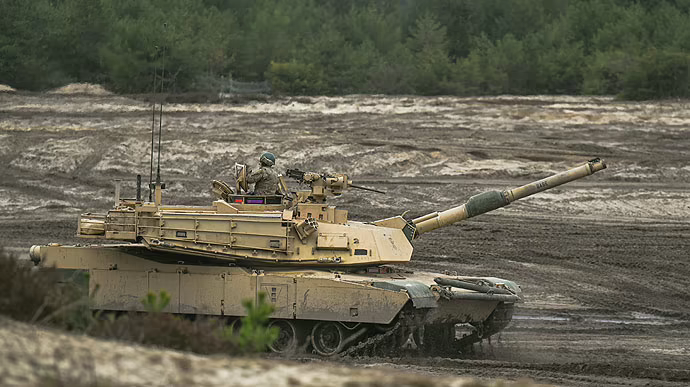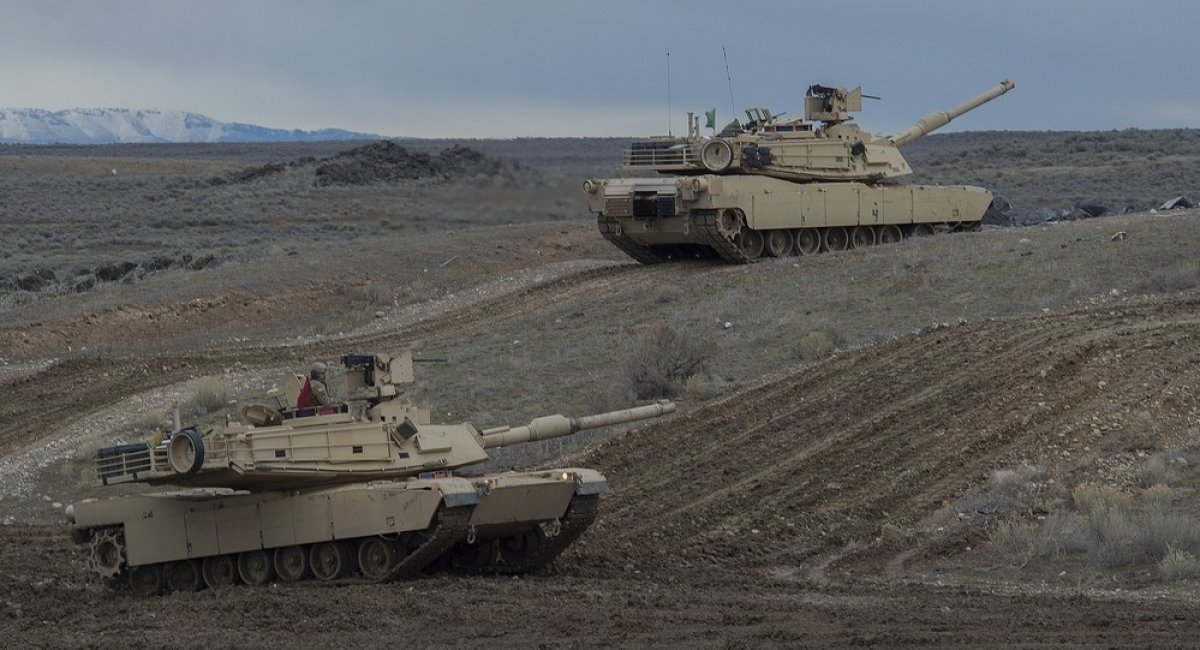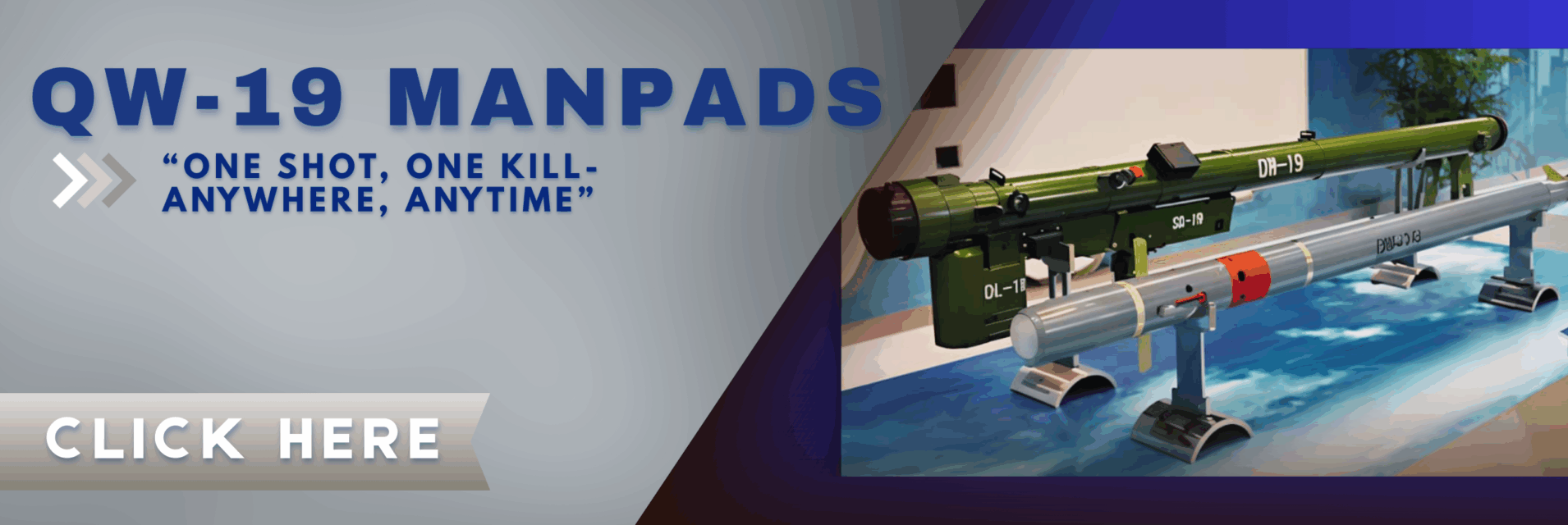“Autumn Operation: Will American Abrams Tanks Become ‘Prey’ in Ukraine?”
The autumn season in Ukraine, with its high rainfall rates, will cause military vehicles, especially Western tanks weighing more than 60 tons, to face difficulties in moving, thus reducing their combat performance.

(DEFENCE SECURITY ASIA) – Even before arriving in Ukraine, international military analysts have already predicted that the 31 M1A1 Abrams tanks donated by the United States will become “prey” to Russia’s anti-tank guided missiles, especially the “Kornet.”
Furthermore, the Abrams tanks are now being sent to Ukraine later than previously expected, which means they will face the autumn and subsequently the winter season in Eastern Europe.
Speculation suggests that Washington delayed the delivery of Abrams tanks to Ukraine to allow for more training for Ukrainian troops who will operate them, especially after what happened to Britain’s pride, the Challenger 2, recently.
The United States does not want the Abrams to suffer the same fate as the Challenger 2, which was destroyed by the Russian military in the Zaphorizia region in southern Ukraine.
The Abrams tanks donated by the United States are expected to be sent to Ukraine at the end of this month or early next month, just one or two weeks before the country enters the autumn season and, after that, winter.

In the autumn, Ukraine will experience heavy rains, causing the soil in the country to become soft and muddy, making it even more challenging for the 67-ton Abrams tanks to operate.
U.S. military officials state that the Ukrainian military only has between 30 to 45 days left to achieve “something” in their counteroffensive phase at this time before conditions become even more difficult with the arrival of autumn and winter.
Western military analysts suggest that Ukraine’s Black Earth is one of the reasons why it has delayed its counteroffensive from spring to summer.
In the autumn, military vehicles, especially Western tanks weighing more than 60 tons, will face difficulties moving, thus reducing their combat performance.
Ukraine is expected to face disadvantage, especially regarding the movement of its troops, who will need to move quickly to capture Russian positions, which are in a defensive posture.
Russian troops have spent months fortifying their defensive positions with formidable lines of fire that are difficult for the Ukrainian military to breach, and the autumn season is expected to give Moscow an advantage.

While the Abrams tanks are equipped with high-powered engines and suspension systems to navigate muddy terrain, it cannot be denied that it will affect the overall performance of the Abrams tanks.
Reduced maneuverability and speed of the Abrams tanks when faced with muddy terrain at the start of autumn in Ukraine provide an opportunity for the Russian military to act.
Not only will the maneuverability and speed of the Abrams tanks be affected, but the mud will also affect other equipment on the tanks, such as sensors and optics, making it even more difficult to detect and engage enemy targets.
What is certain, according to Western military analysts, is that while tanks like the Abrams can still operate in muddy terrain, their overall performance, especially in engaging enemy targets, will be diminished.
Furthermore, operating in muddy conditions will increase the need for maintenance for the Abrams tanks, which will undoubtedly strain logistical aspects and the readiness level of the tanks.
Additionally, the Abrams tanks require frequent maintenance by trained personnel.

Moreover, reports from U.S. media themselves also state that the U.S. Department of Defense has “stripped” sensitive components from the main M1A1 Abrams tanks before they were sent to Ukraine to face the Russian military in the conflict zone.
Washington did this to prevent these sensitive components from falling into the hands of the Russian military if the M1A1 Abrams tanks were captured in the Ukrainian conflict zone.
According to U.S. military officials quoted by USA Today, this action was taken to ensure that sensitive components of the U.S. military’s main battle tank would not be exploited by the Russian military for their own use.
Initially, the United States had planned to send M1A2 Abrams tanks but switched to the less advanced M1A1 variant. — DSA

DOWNLOAD APPS DEFENCE SECURITY ASIA
Sebarang pertanyaan tentang pengiklanan, boleh hubungi admin di/To advertise can contact admin at: haikalhamas73@gmail.com


Comments are closed.